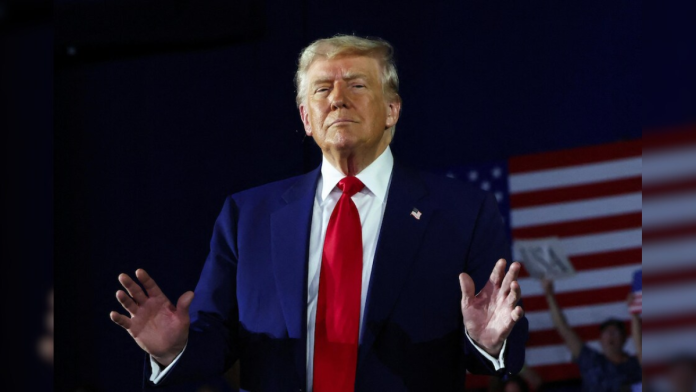The global film industry received a dramatic jolt after U.S. President Donald Trump announced plans to impose 100% tariffs on all foreign-made films. The announcement, posted on the social media platform Truth Social, marks a significant extension of U.S. trade policy into the movie sector for the first time.
Trump specifically highlighted California, the center of the American film industry, as being especially affected. According to him, these tariffs aim to protect domestic jobs and revenue, which have been lost as more studios have chosen to shoot movies abroad. Many foreign countries offer tax incentives and lower production costs, making it financially attractive for studios to work outside the U.S.
Sudden Shock to Hollywood
The announcement caused immediate surprise in Hollywood. Industry insiders pointed out that the President does not have a clear legal path to implement such tariffs. Movies are often made across multiple countries, and many are distributed digitally, which complicates enforcement.
Trump slaps 100% tariffs on medicines and new duties on trucks and furniture
Despite these challenges, the announcement had a noticeable effect on the stock market. Shares of major companies, including Netflix, AMC, and Walt Disney, rose slightly following the news. Analysts suggest this may reflect expectations that domestic production could become more valuable under the proposed tariffs, or that market dynamics might shift in response to changes in film imports.
Box office numbers in the U.S. have not fully recovered from past declines. Ticket sales fell from nearly $12 billion in 2018 to just over $2 billion in 2020. Even after theaters reopened, annual totals have not returned to pre-pandemic levels, remaining below $9 billion. The proposed tariffs introduce another layer of uncertainty for studios still navigating these challenging conditions.
How the Tariffs Could Work
The 100% tariffs would be the first in the U.S. to target a service rather than a physical product. Traditionally, such duties are applied to goods like cars, electronics, or furniture. Applying a tariff to movies raises practical questions: would it affect digital downloads, streaming platforms like Netflix, or only physical media such as DVDs and Blu-rays?
Oregon files federal lawsuit to block Trump’s troops — cites 10th Amendment and abuse of power
Trump also cited concerns over tax incentives offered by other countries that attract film productions away from the U.S. By imposing the tariffs, foreign-made films could become more expensive in the United States, encouraging studios to produce movies domestically.
Experts note that many studios have already moved parts of production overseas to benefit from lower labor costs and favorable tax structures. A 100% tariff could force studios to rethink where they produce films, though no specific details were provided about when or how the tariffs would be implemented. Enforcement would likely be complex due to the global nature of film production.
Brazil draws red line — Lula declares nations will not bow to Trump’s economic threats
Broader Trade Measures
This film tariff proposal is part of a wider trade strategy. Reports indicate that Trump’s administration also plans to impose:
- 100% tariffs on branded pharmaceuticals, with some exceptions.
- 25% tariffs on heavy trucks.
- 50% tariffs on kitchen cabinets and vanities.
- 30% tariffs on upholstered furniture.
In addition, Trump hinted at broader tariffs on furniture imports, suggesting that the administration is pursuing an expansive approach to protecting U.S. industries. These moves collectively send a strong signal that trade policy is increasingly focused on domestic production, extending even into areas like services and entertainment.
For the global film industry, the announcement underscores that the U.S. may prioritize domestic content in ways that could influence production, distribution, and revenue. Studios, investors, and distributors are watching closely as the situation unfolds, with the potential to impact business decisions across the world.


